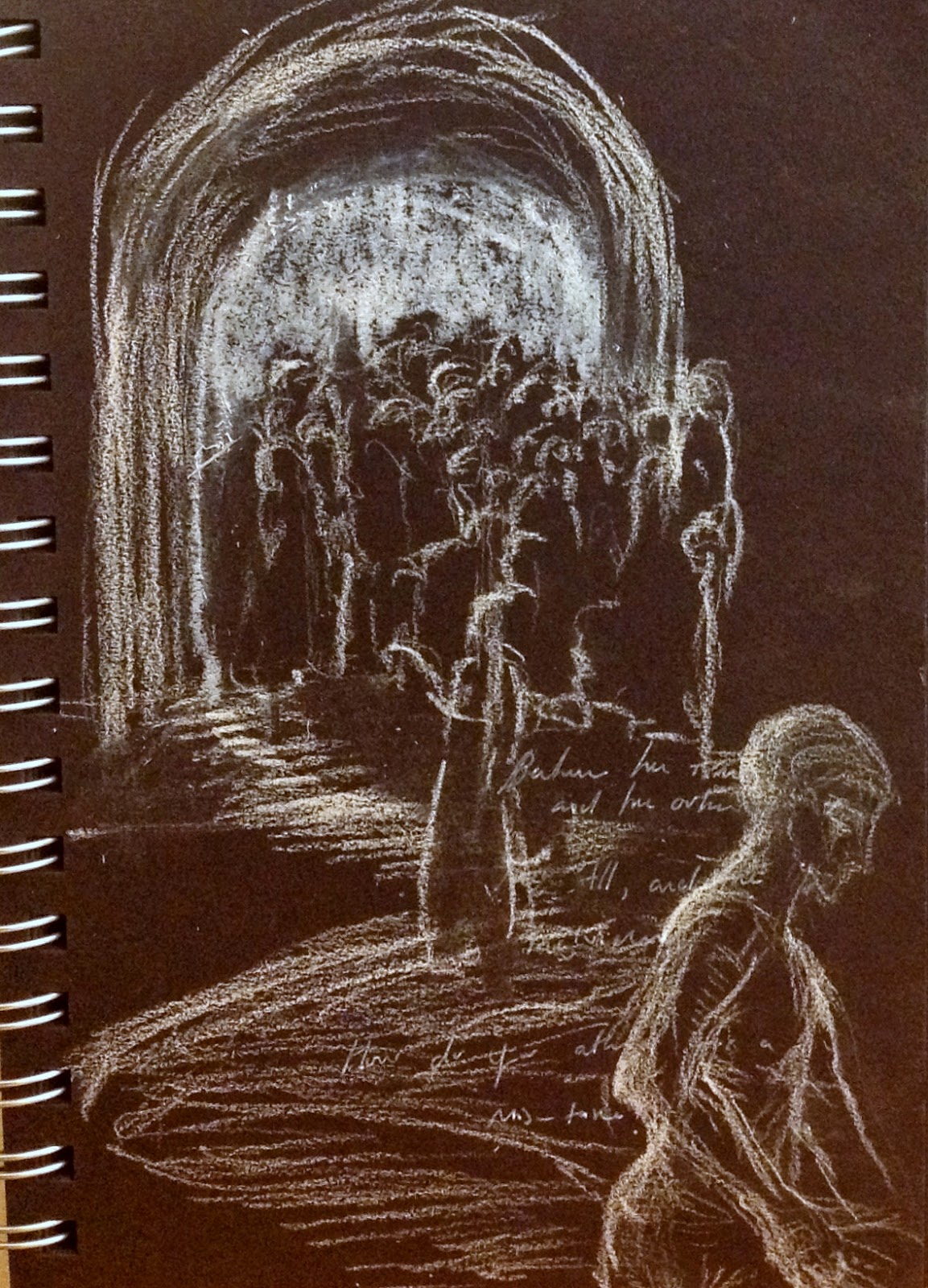What do you bring in
When you go out
And what do you take out from within?
[For full chapter click here
The chapter is a mixed back of disparate
laws. Its opening reiterates and intensifies the themes of the previous
chapter, while its closing looks ahead, to a time after settling in the land,
defining the relationship between parents and children in a society where inheritance
is at stake.
The opening section reiterates the previous themes of “coming in” and “gone out,” yet complicates them. If in the previous chapters, we established a
sacred space “within” and then “went out” to war, here what is out is brought
in, and what is in is taken out.
The opening returns us to the laws
of murder, and the metaphysical responsibility for blood: “you must expunge clean
blood from within you.” Yet the movement “out” has changed the responsibilities
“within” (a key word in all these chapters). In chapter 19, we dealt with the
laws concerning inadvertent manslaughter, and the need to provide refuge for
the killer from vengeful relatives who seek to “redeem the blood”—a responsibility
to those who fit “within” (k’r’v) the roads and center that define
Israel. Here, the responsibility is instead to the anonymous corpse, to the
outsider who has no relative to demand “redemption.” Literal closeness,
physical proximity, creates a bond: “then your elders and judges shall come
forth, and they shall measure the distance unto the cities which are round
about him that is slain. And it shall be that the city which is next to he that
is slain, the elders of that city shall take a heifer that has not drawn a yoke…”
The ritual of atonement enacted by
the elders brings what is outside into the intimate sphere. The unbroken heifer
is taken to a wild “river that is not worked,” and what is beyond human
habitation comes to atone for human habitation. The ritual shares much in
common with the enigmatic laws of the Red Heifer, which comes to purify after
contact with death. Here, we restate the connection between inheritance and
blood, but a level of primal rituals of contact with the earth. The stranger is brought “within” the circle of
responsibility, and the unmarked spaces beyond the roads are webbed in to the
sacred.
After bringing the outside in, we
once again move “out” to the laws of war (the two sections are connected by a word
play on yi-matze—“find”-- and te-tze—“go out”). Yet if the
previous section on war mandated complete destruction, so as to prevent “learning
from their abomination,” here, there is a possibility of bringing a captured woman “into your home.” After
following a ritual of mourning and symbolic severing “inside your home,” the outside
can become intimate: “and afterwards she shall be your wife.”
Uniting these
two sections is a focus on seeing and eyes: the elders must swear that “Our hands have not shed this blood, nor have our eyes seen
it,” so that they will do “the right in the eyes of God.” The unseeing eyes then open to see “among the captives a woman
of beautiful form” (21:7).
At the closing of the chapter, the focus on seeing shifts to a focus on hearing, as the breakdown of relationship between parents and children is defined by "he does not listen to us" (21: 20); and the son's death penalty is supposed to make "all of Israel listen." Here, what is closest is expunged, as the parents "take out" (ho-tzi-u) their son to the court.
There is constant pulsation between bringing in and going out, between closing the senses, and opening them.]
At the closing of the chapter, the focus on seeing shifts to a focus on hearing, as the breakdown of relationship between parents and children is defined by "he does not listen to us" (21: 20); and the son's death penalty is supposed to make "all of Israel listen." Here, what is closest is expunged, as the parents "take out" (ho-tzi-u) their son to the court.
There is constant pulsation between bringing in and going out, between closing the senses, and opening them.]


















